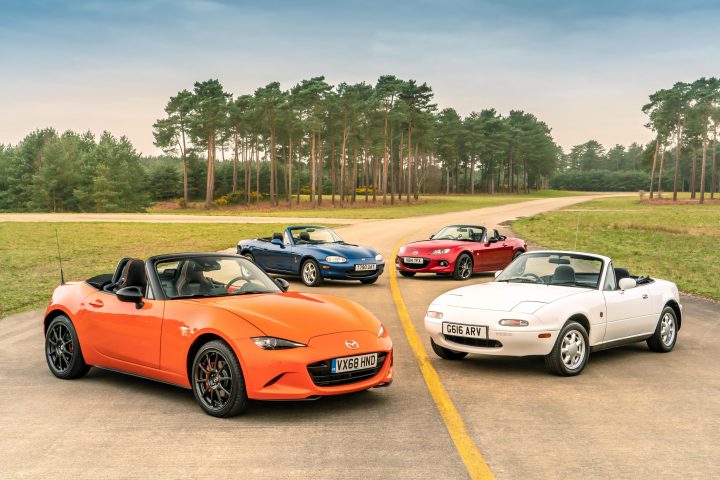Open-top driving is increasingly becoming a rarity for U.K. drivers as the number of new convertible model options has dropped by nearly 50% since 2000 — a 20-year low after peaking in 2005.
Results from the latest annual Convertibles Report by CarGurus reveal that consumers only have the choice of 16 new convertible model options from the U.K.’s top 30 manufacturers, a decrease of 48% compared to 31 in 2000.
The greatest drop in available models occurred in the last five years, showing a decline of 45% from the 29 options available in 2020. Even in the past 12 months, the body style has experienced an almost 28% decline, dropping from a choice of 22 cars to today’s 16.
CarGurus’ research also revealed that in 2025, only 10 manufacturers still offer convertibles as part of their model ranges, compared to 15 in 2000 and 23 in 2005, the height of selection. Now 68% of the nation’s most popular car makers don’t include this body style in their new model lineup.
 The brands with convertible models in their current range are BMW, Fiat, Ford, Jeep, Mazda, MG (above), Mini, Mercedes, Porsche, and Volkswagen.
The brands with convertible models in their current range are BMW, Fiat, Ford, Jeep, Mazda, MG (above), Mini, Mercedes, Porsche, and Volkswagen.
Of these, just five have consistently offered a soft top to customers over the last 25 years — BMW, Mazda, Mercedes, Porsche, and Volkswagen.
In the last 12 months, Audi has ceased offering any convertibles as part of its range. The brand’s flagship model, the R8 Spyder, had been on sale for 16 years.
Predated only by the Porsche 911 Cabriolet, the Mazda MX-5 is the longest-standing affordable convertible still on sale in the U.K., having been around since 1990.
BMW, Mercedes, Porsche, and Volkswagen have included at least one convertible as part of their model range for decades. More recently, BMW has offered them via the ‘Z’ range of cars, starting with the Z1 in 1989, and has consistently offered a convertible since the unveiling of the Z3 in 1995. While Porsche is synonymous with the convertible, its 911 Cabriolet and Boxster models have had an enduring presence since the 1980s and 1990s, respectively.
Of the 16 convertibles from the top 30 manufacturers in the U.K., two of them are electric vehicles at the time of writing: the MG Cyberster and the Fiat 500e C. Outside of these top 30 car makers other electric convertibles include the Abarth 500e and Maserati GranCabrio Folgore.
It’s not all bad news, however, as the lack of new convertibles means that used models’ prices are holding up better than in many years and some cars may actually command higher prices second hand than when launched while the classics over 25 years of age are among the most sought after without a lot of modern technology which can be expensive to repair.
Classic car emissions are falling year-on-year as more modern, fuel-efficient vehicles achieve classic status.
While the number of classics on our roads has more than doubled in the last 10 years, emissions from the sector as a whole have only increased by 34% since 2013, thanks to a 16% reduction in average emissions per vehicle.
There are now more classics on our roads than ever before. In 2013, there were 466,830 classic cars in the UK, but by the end of 2024 that figure had more than doubled to 1,056,919.
The rate at which that figure has been rising has also doubled, with some 63,000 cars reaching the automotive equivalent of pensionable age last year alone.
